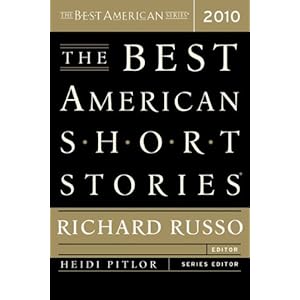
Digital Photography Secretsby David Peterson Click Here!
African Americans, creating a musical language out of their public experiences of slavery and oppression, are the source that raised American music to greatness in the 20th century. As each new style emerged into the larger culture, it was initially denigrated and criticized, much like society denigrated the black Men and woMen it had forcibly brought into its midst. The loudest critics were not all the time whites, though. Churchgoing blacks once upheld a dichotomy in the middle of gospel (God's music) and the blues (the devil's music).
Evidence for the blues dates back to the colonial era. The term "the blue devils," referring to melancholy, entered the English language while the 17th century, perhaps through the slave trade. There is also a folklore connection in stories of how the devil taught a musician to play his instruMent, exemplified by the well-known legend of blues guitarist Robert Johnson at the crossroads. The style of the blues, reflecting its rural origins, is easy and easy to grasp with its standard form, basic chord progressions and repetition, which perhaps explains its universal popularity. The sliding tones and microtonal "blue notes" that became standard features of the blues get from African musical eleMents.
American Stories
In distinction to the blues, jazz emerged at the end of the nineteenth century in the sophisticated urban setting of New Orleans. Its style blended African musical traditions (improvisation, distinct techniques of playing instruments, and syncopated, complex rhythms) with European traditions (brass troops bands and chords derived from European harmonic tradition). The term "jazz" perhaps originated from a West African term related to sex. The wild, uninhibited dancing that came to be related with jazz in the 1920s aroused a lot of antipathy from more tradition-bound society. In 1926, for instance, the Cincinnati Salvation Army obtained a temporary injunction against the building of a movie theater because jazz music emanating from the theater would implant "jazz emotions" in babies in the neighboring maternity hospital. But jazz grew in popularity, capturing the energy and brashness of the American spirit.
World War Ii established the U.S. As a superpower, and it began to dominate the world culturally and economically. While jazz artists were pushing the boundaries of their art into new levels of complexity with bebop, someone else African American musical style arose, a return to the simplicity of blues, but Faster. That style came to be known as rock and roll - once again with a sexual connotation. So of procedure the music was criticized as degenerate, which perhaps only added to its allure. Initially this "race music" was banned from radio and television, a situation that John Waters comically critiques in "HAirspray." Once it was reinterpreted by white musicians like Elvis Presley, however, it spread like wildfire. while that conformist decade, it was unfortunately more comfortable for many white kids to listen to black music performed by white musicians.
British musicians, influenced by recordings of classic American blues (which ironically had long since waned in popularity in the U.S.), brought their version of rock and roll to the U.S. In the early 1960s in a cross-pollenization that advanced into rock. That style, with its myriad genres, held sway for 25 years before being edged out by yet someone else new African American style, rap.
Rap arose in New York City in the early 1970s, brought to the city by Jamaican immigrant Kool Herc. The rhythmic patter of words over a beat harkened back to African oral traditions and the itinerant griot musician who had to have the quality to extemporize on current events and opening incidents happening in the midst of his song. By 1998, rap was outselling every other music genre in the U.S.
So each of these styles, originating in the African American society and ultimately emulated by the larger culture despite hostility from some camps, has been enormously influential, along with less pervasive African American styles like soul, funk and disco. The fact that the music was transgressive and forbidden, and often related with sexuality, also added to the music's power. (The only other 20th century musical culture of equally rich stature, though not as influential, is that of Brazil - the consequent of someone else heterogeneous racial mixture.) Displaced African Americans used the musical elements from their legacy to generate something new that, because of its expressive power and its embodiment of the American spirit in a century dominated by America, became some of the most influential music in the history of the world. Stop to think how impoverished your life would be if none of this music had ever happened.
What Makes American Music Great?
Digital Photography Secretsby David Peterson Click Here!
Tags : USB Battery Charger & Accessories Deals Bulova Womens 96R19 Watch Rubbermaid Food Storage Container Teacup Maltipoo Puppies
![The Best American Short Stories 2010 (The Best American Series (R)) [Paperback]]( http://ecx.images-amazon.com/images/I/417-fWjfIYL._SL500_AA300_.jpg )

No comments:
Post a Comment